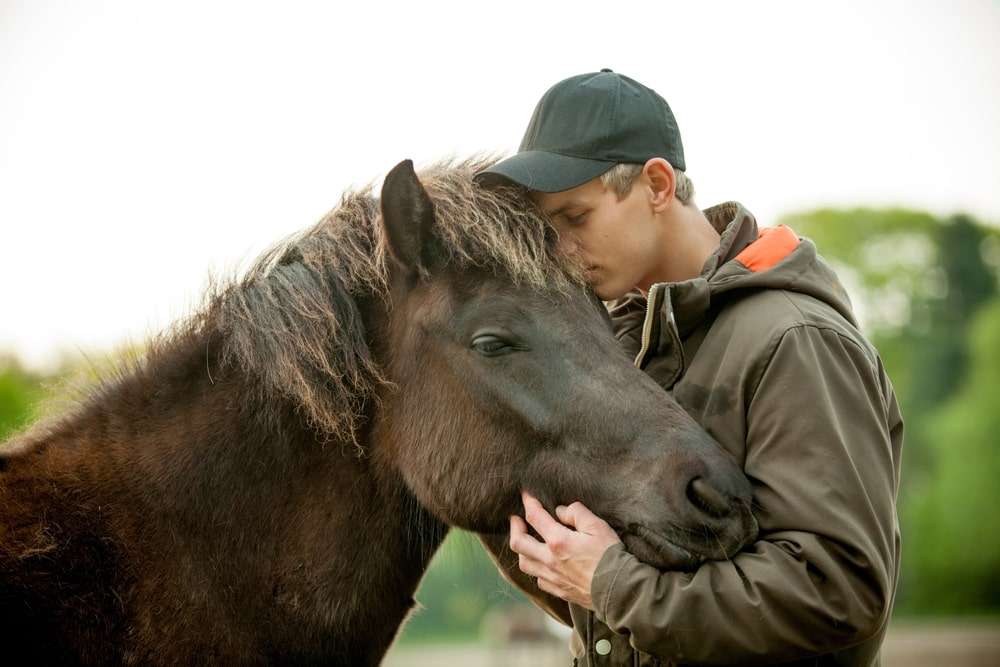Equine therapy, also known as horse therapy or equine-assisted therapy, has emerged as a unique and effective approach to promoting mental health and emotional well-being. The inherent connection between humans and horses transcends the equestrian realm, extending into the realm of therapeutic interventions. Through purposeful interactions and activities with horses, individuals can experience a range of benefits that touch on various facets of their mental health. This holistic approach acknowledges the interconnectedness of emotional, psychological, and physical well-being, offering a distinctive avenue for personal growth and healing. The benefits of equine therapy for mental health are diverse and encompass various aspects, such as:
- Emotional Regulation: Interacting with horses can help individuals develop emotional awareness and regulation. The responsive nature of horses often mirrors and reflects human emotions, providing immediate feedback and promoting emotional self-control.
- Building Trust and Confidence: Establishing a connection with a horse requires trust, patience, and effective communication. For individuals struggling with trust issues or low self-esteem, working with horses can be a powerful tool for building confidence and fostering a sense of accomplishment.
- Communication Skills: Horses communicate primarily through non-verbal cues and body language. Engaging with them enhances individuals’ non-verbal communication skills, helping them become more attuned to others’ emotions and improving their own ability to convey feelings without words.
- Stress Reduction: The calming presence of horses and the serene environment of equine therapy settings contribute to stress reduction. Spending time outdoors, engaging in physical activities, and connecting with animals can positively impact the nervous system and reduce overall stress levels.
- Mindfulness and Present Moment Awareness: Working with horses requires individuals to be present in the moment, fostering mindfulness. This practice can be particularly beneficial for individuals dealing with anxiety or depression, helping them focus on the present rather than dwelling on past events or worrying about the future.
- Social Skills and Relationship Building: Group equine therapy sessions provide opportunities for social interaction and collaboration. Participants learn to work together, solve problems, and build positive relationships, contributing to improved social skills and a sense of community.
- Empowerment and Independence: Taking responsibility for the care and management of a horse can empower individuals, fostering a sense of independence and self-efficacy. This empowerment can translate into increased confidence in dealing with life’s challenges.
- Physical Exercise: Engaging in equine-related activities, such as grooming, riding, or leading a horse, provides physical exercise. Physical activity is linked to improved mental health, as it releases endorphins and reduces symptoms of anxiety and depression.
- Coping Skills Development: Equine therapy offers a unique environment for individuals to practice and develop coping skills. The challenges and successes experienced in working with horses can be translated into effective coping mechanisms for handling life’s difficulties.
- Holistic Healing: Equine therapy is a holistic approach that addresses the physical, emotional, and mental aspects of an individual’s well-being. The interconnectedness of the horse-human relationship can lead to comprehensive healing and personal growth.
Equine therapy stands as a powerful and holistic modality for fostering mental health and emotional resilience. The symbiotic relationship between humans and horses taps into a profound connection that extend beyond conventional therapeutic approaches. Its capacity to address the mind, body, and spirit, exemplifies the profound possibilities that arise when the human-animal bond is harnessed for therapeutic purposes.
Treatment In Calabasas
Calabasas is a city in California. It is a well-known suburb of Los Angeles, located west of the San Fernando Valley and north of the Santa Monica Mountains. Over the past decade, the city of Calabasas has grown in its reputation for luxury as well as for privacy which makes it a hidden gem for residential living for society’s elite, and one of the most desirable destinations in Los Angeles County. It is also home to a plethora of highly qualified mental health clinicians providing an array of therapeutic services and treatment options.
The information above is provided for the use of informational purposes only. The above content is not to be substituted for professional advice, diagnosis, or treatment, as in no way is it intended as an attempt to practice medicine, give specific medical advice, including, without limitation, advice concerning the topic of mental health. As such, please do not use any material provided above to disregard professional advice or delay seeking treatment.




